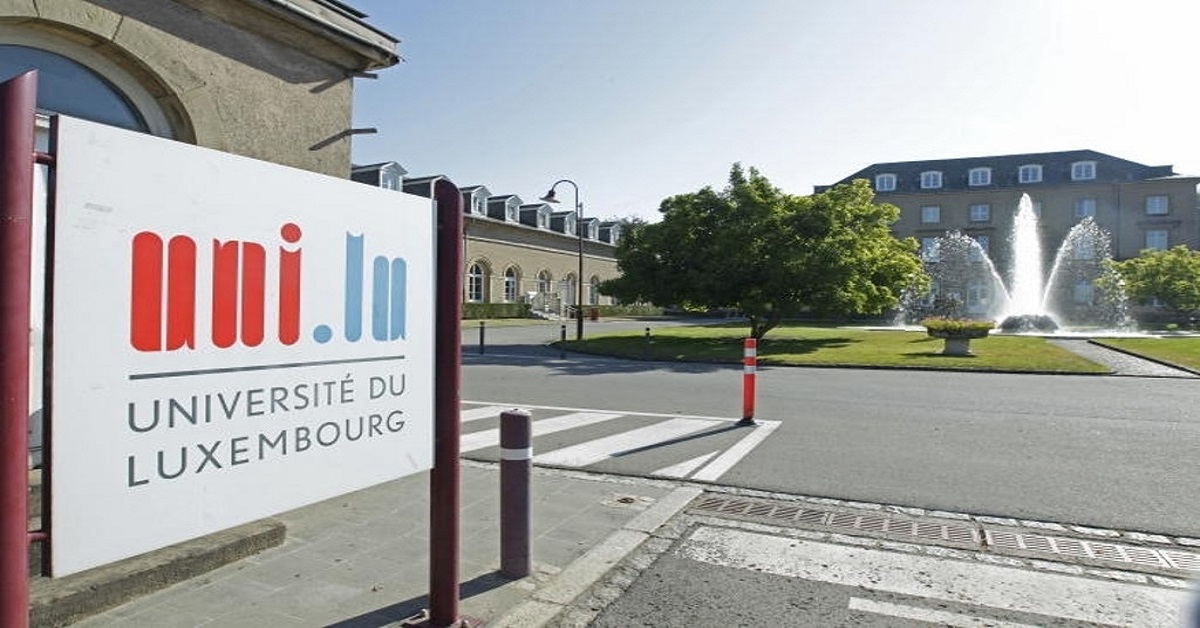The University of Luxembourg is an international research university with a distinctly multilingual and interdisciplinary character. The University was founded in 2003 and counts more than 6,700 students and more than 2,000 employees from around the world. The University’s faculties and interdisciplinary centres ;focus on research in the areas of Computer Science and ICT Security, Materials Science, European and International Law, Finance and Financial Innovation, Education, Contemporary and Digital History. In addition, the University focuses on cross-disciplinary research in the areas of Data Modelling and Simulation as well as Health and System Biomedicine. Times Higher Education ranks the University of Luxembourg #3 worldwide for its “international outlook,” #20 in the Young University Ranking 2021 and among the top 250 universities worldwide.
Within the University, the Luxembourg Centre for Systems Biomedicine (LCSB) is a highly interdisciplinary research centre (IC), integrating experimental biology and computational biology approaches in order to develop the foundation of a future predictive, preventive and personalized medicine.
The University of Luxembourg has the following vacancy at the Luxembourg Centre for Systems Biomedicine (LCSB) as part of a recently funded European Research Council (ERC) Consolidator grant (https://erc.europa.eu/funding/consolidator-grants)
AREA:
Modelling of microbiome multi-omics data to identify key effector molecules
Your Role…
The human gut microbiome is a complex ecosystem which contributes essential functions to human physiology. Changes to the microbiome are associated with several chronic diseases characterised by inflammatory signatures which include autoimmune and neurodegenerative diseases. The gut is a reservoir for extensive microbial “dark matter” in the form of soluble nucleic acids, (poly-)peptides and metabolites with bioactive properties. These molecules have so far eluded in-depth study. This gap in knowledge is limiting our understanding of the role of the human microbiome in governing human physiology and how changes to the gut microbiome impact inflammation-linked chronic diseases such as rheumatoid arthritis (RA) and Parkinson’s disease (PD). As part of the ERC-funded ExpoBiome project, a gut microbiome-targeted therapeutic intervention, i.e. fasting, is being performed together with leading clinical partners in Berlin (Germany) and Kassel (Germany). Based on systematically collected samples, the aim is to identify and track common and disease-specific molecular signatures to predict the outcome of the therapeutic fasting regimen. Molecules which are associated with a reduction in inflammatory markers will be further investigated for their anti-inflammatory properties including using our unique human-microbial co-culture system called HuMiX. In summary, the project will yield functional insights into the effect of gut microbiome-derived molecules on clinical manifestations and will provide pointers towards key microbiome-derived molecules to control inflammatory conditions in the future.
You will identify and track common and disease-specific molecular signatures to predict the outcome of a gut microbiome-targeted therapeutic intervention, i.e. fasting, on inflammation-driven symptoms in PD and RA. Based on the generated data, you will identify and validate microbiome-derived effector molecules which downregulate pro-inflammatory innate and adaptive immune pathways. Your work will identify novel microbiome-derived molecules and targeted pathways to control inflammatory conditions in the future.
The Ph.D. student will work in the Systems Ecology group at the LCSB and will be supervised by the head of the group, Prof. Dr. Paul Wilmes.
What we expect from you…
Early-stage researcher: a researcher without a PhD, who is in the first four years (full-time equivalent research experience) of her/his research career, measured from the date when she/he obtained the degree, which would formally entitle her/him to embark on doctoral research. You will have experience in high-throughput biomolecular analytics, bioinformatics and modelling. Graduation in the field of computational biology, bioinformatics, computer sciences, physics or related fields. Basic knowledge of coding and complex data analysis is an absolute must. Well-structured and autonomous working style, good organizational and communication skills. Fluency in written and spoken English is a must, German and/or French is a plus.
In Short…
- Contract Type: Fixed Term Contract 36 Month (extendable up to 48 months if required)
- Work Hours: Full Time 40.0 Hours per Week
- Starting date: As soon as possible
- Location: Belval
- Employee and student status
- Job Reference: UOL04900
The yearly gross salary for every PhD at the UL is EUR 37.101,36 (full time)
How to apply…
Applications in English should be submitted online and include:
- A detailed curriculum vitae
- Cover letter indicating your motivation for this position, relevant past experience and future interests
- Name and addresses of two referees
Early application is highly encouraged, as the applications will be processed upon reception. Please apply formally through the HR system. Applications by email will not be considered.
The University of Luxembourg embraces inclusion and diversity as key values. We are fully committed to removing any discriminatory barrier related to gender, and not only, in recruitment and career progression of our staff.
In return you will get…
- Multilingual and international character. Modern institution with a personal atmosphere. Staff coming from 90 countries. Member of the “University of the Greater Region” (UniGR).
- A modern and dynamic university. High-quality equipment. Close ties to the business world and to the Luxembourg labour market. A unique urban site with excellent infrastructure.
- A partner for society and industry. Cooperation with European institutions, innovative companies, the Financial Centre and with numerous non-academic partners such as ministries, local governments, associations, NGOs …
Further information…
For further information, please contact:
Prof. Paul Wilmes
E-mail: paul.wilmes@uni.lu
Telephone: (+352) 46 66 44 6188
